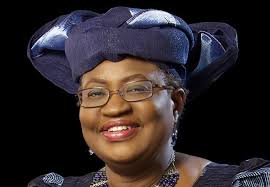
The Nigerian Ngozi Okonjo-Iweala was appointed Monday, February 15 at the head of the World Trade Organization (WTO) in the hope of putting an end to years of deadlock in the institution.
“WTO members have just agreed to appoint Dr. Ngozi Okonjo-Iweala as the next Director-General of the WTO. The decision was taken by consensus at a special meeting of the organization’s General Council today,” the WTO announced about 15 minutes after the opening of the meeting.
Nine months is how long it took the WTO to deliver a new Executive Director. A birth that was not without pain. Nigerian Ngozi Okonjo-Iweala had to face many challenges before she was able to win by consensus.
Africa, which had never led the WTO before, first left in scattered order, presenting three candidates, including the Kenyan Amina Mohamed who has long been a favorite because of her knowledge of the internal workings of the organization. Another handicap was that the Nigerian candidate was supported only at the tip of her tongue by her country. President Buhari ostentatiously neglected her gestures of support.
While in October, consensus was finally reached around the former vice-president of the World Bank, Donald Trump vetoed it. He prefers South Korea’s Yoo Myung-Hee.
The WTO wisely decided to wait for the results of the American presidential election before making a decision, a strategy that paid off for Ngozi Okonjo Iweala, since the new American president, Joe Biden, was quick to lift his veto and give him his support. She thus succeeds the Brazilian Roberto Azevêdo who had resigned in mid-May 2020 in full term for family reasons .
Ngozi Okonjo-Iweala takes the lead of the international institution as the Covid-19 pandemic affects all economies in the world. These first words of the director reminded us of this situation. She immediately called for a revival of the WTO, deeming it “essential” that the institution be “strong” to overcome the “ravages caused” by the virus and revive the world economy. “Our organization faces many challenges, but by working together, we can collectively make the WTO stronger, more agile and better adapted to today’s realities,” she said.
A graduate of Harvard and the Massachusetts Institute of Technology (MIT), a former number two at the World Bank, and twice Nigeria’s finance minister, the 66-year-old economist warned even before her appointment that if she were to head the WTO, it would be for her skills and not her origins.
This convinced liberal is not here to overturn the table but she hopes to bring the organization out of the torpor in which it has been immersed for several years:
The first priority is to find solutions to the pandemic,” she said. Not only in terms of health, but also economically. And how trade liberalization and resumption of trade will help the economy to recover. After that, I would like to see work on the negotiations on fisheries subsidies. They’ve been going on for 20 years. That’s a long time. While they are crucial, especially for the preservation of the sector”.
Another priority of the new institutional boss of the WTO is to revive the organization’s dispute settlement system, which has been completely paralyzed since Donald Trump refused to renew the judges of the Appellate Body. The arrival of the Biden administration will no doubt make Dr. Ngozi’s task a little easier. Even if it does not solve everything in a WTO where arm wrestling between states is now the rule and consensus the exception.
